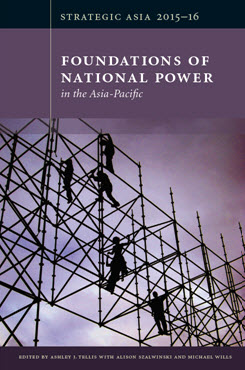Japan's National Power in a Shifting Global Balance
This chapter argues that Japan has the economic strength, political cohesiveness, and state infrastructure to develop and deploy comparatively significant military capabilities in Asia.
EXECUTIVE SUMMARY
MAIN ARGUMENT
As the first non-Western country to modernize its society, government, and economy, Japan has been one of the most powerful Asian states since the late nineteenth century. Despite over two decades of economic stagnation, it remains highly developed, and its economy is slowly adjusting to a postindustrial era. The government is competent and organizationally complex, while elites in both the public and private sectors are highly educated and capable. Japan’s natural resources are limited, but its other national resources are well-developed. Though hampered by groupthink and risk aversion, Japan’s political, corporate, and intellectual leaders achieve high levels of national performance, despite ongoing internal rivalry, group interests, and the lack of individual leadership. These strengths translate into military capabilities that are unmatched by most states in the Asia-Pacific region. However, Japan’s self-imposed restrictions on overseas military operations and an unwillingness to build a military force commensurate with its economic size have resulted in a smaller and less operationally experienced military than would otherwise be expected.
POLICY IMPLICATIONS
- Japan’s greatest need is to embrace radical structural reform in its economy, thereby revitalizing innovation and competitiveness and sparking sustainable postindustrial growth.
- Japan should embrace Prime Minister Shinzo Abe’s plans for a more regionally and internationally engaged foreign policy that offers unstinting liberal support for an open, rules-based order in the Asia-Pacific.
- Japan should expand and modernize its military, even beyond Abe’s current plans, and free itself from restraints that prevent it from playing a central role with liberal allies in maintaining regional stability.
Strategic Asia
The Strategic Asia annual edited volume incorporates assessments of economic, political, and military trends and focuses on the strategies that drive policy in the region. Learn more about Strategic Asia.



